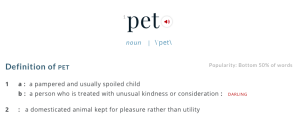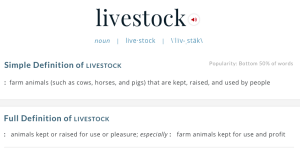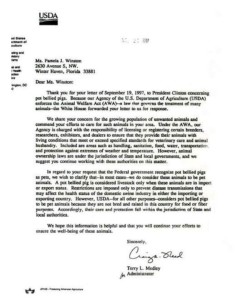

During each public hearing, citizens are invited to speak in support of, or in opposition, to each request. In preparing a presentation, groups or communities sharing similar concerns are encouraged to select representatives to address the Board or Commission. This preparation will assure that all opinions are expressed while avoiding repetitive comments. The public hearing begins with a presentation of the request by a staff member. The applicant then discusses the case. Individuals wishing to speak to the request present their views and the applicant will be permitted closing remarks. The Commission and Board are experienced in balancing development and in protecting area neighborhoods and adjacent properties. They are knowledgeable about traffic, drainage and land transition issues throughout the County. It is important for citizens to provide specific comments about how the request will affect their neighborhood. This is how the system is designed to work. Each voice or concern has the opportunity to speak and plead their case either for or against the ordinance being amended.
One of the first things that needs to be addressed is the definition of livestock and the definition of a pet. The use of word swine or pigs typically refers to meat animals when referring to livestock, potbelly pigs are not meat animals, therefore shouldn’t be classified in the same livestock category. They provide nothing but companionship. Livestock indicates there is an underlying use from the animal. Cows and milk, pigs and meat, etc. The USDA does not regulate potbellied pigs as they’re not used as a food source. There is the USDA letter posted on the website that reflects their view, but it is an older letter and I am in the process of writing to them to get this clarified and updated.
One of the issues I have seen is property value decline is conjecture and unsubstantiated. The Appraisers association lists factors, none of which address neighboring pets. On the property values issue, I would recommend adding a few pics of the front, sides and back of the property to show there is no evidence of any animal on the property and no destruction or nuisance associated with having a pig as a pet. I would take pictures of inside accommodations for your pig as well as outside areas. They need to understand this is a pet, certainly not a conventional pet, but a pet nonetheless. Include pictures of your family with you pig, they need to see that pigs aren’t nuisance animals, but friendly and adapt to a household much like conventional animals do. Pigs do dig, that is a fact, but a pig rooting up some of YOUR yard isn’t problematic, I wouldn’t highlight the rooting as a benefit, but certainly include that you have set aside an area for your pig to “be a pig” in your packet so that is addressed and off the table as a possible opposition.
Another issue I’ve seen people complain about on various threads is the smell of pigs. As pig owners, we know pigs don’t sweat or emit a foul odor. Pet pigs and a pig farm are two separate entities and shouldn’t be compared. Having 1,2, even 4 pigs will not cause an odor. As a responsible pet owner, you definitely need to be aware of animal waste ordinances and do your part to clean up after your pig. Feces in itself isn’t a pleasant smell and this shouldn’t be a reason why a pig isn’t allowed. All animals urinate and defecate and owners need to be sure to clean up after their animals.
Some cities allow pigs while the HOA does not. You are responsible for checking out any agreements you sign when moving into a house or neighborhood, if you moved to an area where there is a homeowners association, be sure to look at the pet section and try and handle that before you get a pig to save court costs and heartbreak.
An additional comment I’ve seen posted is regarding aggression and pigs. ANY animal has the potential to be aggressive without proper training. Pigs are no different. I would collect information from animal control about animal bites over the last several years and compare that to how many of those were bites from a pig. (Hopefully that number will be zero). Pigs are not known to be aggressive animals by nature, feral pigs have been known to be aggressive, but thats to protect themselves, pigs don’t seek trouble under routine circumstances. Take a video of your pig playing in the yard, ask others to share their videos of their pigs playing with their families, other pigs, at community events, like kiss the pig events, or pigs that visit nursing facilities, etc. Show them domesticated pigs don’t have aggression like wild animals do.
If you have started a petition on change.org, I would include that in your packet you submit to your county/city. I would also ask supporters to email you, neighbors to write letters of support and have any supporters accompany you to the hearing. The city/county needs to know you’re not alone. There are 1000’s of other people who love pigs and treat them as part of the family. Ask others in the pig community to share stories and pictures that can be included. The elected officials may need to be educated on how smart pigs are or the fact they bond with their human family and grieve when removed. Let them know about the pig community and educational resources available to you, them and anyone else who is considering getting a pig as a pet.
Provide documentation from your vet with a clean bill of heath. Check the other pet restrictions and be sure if they’re required to have vaccinations that your pig is in compliance. Be sure to check the animal welfare rules to ensure you have all the appropriate accommodations your city/county requires. Make sure they know the pig is contained, lives IN the house although may have accommodations outside for extreme temperatures.
Be sure to let them know other cities/counties DO allow pet pigs within city limits.
http://www2.ljworld.com/news/2012/jan/18/some-pigs-city-allows-potbellied-swines-pets
Here are some other success stories you may want to include in your packet
http://articles.latimes.com/1997/dec/11pigstays/local/me
http://abcnews.go.com/US/florida-family-fights-potbellied-pet-pig/story?id=24569517
http://wilbursardo.com
http://www.nbcnews.com/id/us_news-life/t/swine-get-break-colorado-springs/
http://www.chron.com/news/houston-texas/article/Family-s-pot-bellied-pig-can-stay-despite
Look up ordinances in neighboring cities in your area, see if any allow pigs and include those cities in your packet. Collect additional information about those cities such as licensing requirements and fees. Offer to be a mentor in your area for other pig parents, let the city know you’re passionate and care about these animals like they are your children and how the pig community is strong and helps each other. Ask for regulations in breeding of pigs in your area, discuss the amount of space, realistically, a pig needs. Another concern is that animal controls are not prepared to handle pigs in their facilities and those hard concrete floors aren’t ideal for pigs either. Come up with useful alternatives, find a network of foster parents in your area so the city can call prepared and knowledgable people to help car for pigs that are found to be strays or unwanted. Prepare with shelter guides for the animal control centers in your area. Also let them know that not everyone should have a pig, they’re intelligent animals that need constant stimulation, but for the right families that are prepared, they likely won’t have any negative repercussions from allowing them to live within city limits.
This city asked very specific questions and did research to answer their questions. Perhaps being on top of this and having appropriate documentation to address these up front would be useful. The questions are 1. Is a miniature pig a farm animal? 2. If a miniature pig is not a farm animal, does it behave similarly to other domesticated animals therefore it could be considered a pet? The definitions for livestock and pet are pictured above. Since our pigs do not have a “use”, they should not be considered livestock and because their use is to provide companionship or pleasure, they absolutely fit into the pet category. It is a matter of presentation. You must be prepared for the questions they may ask, arm yourself with facts. Attached with the packet is his presentation which helped to change the ordinance in his county.
http://www.midland-mi.org/government/commissions/meetings/.pdf.
If you aren’t able to view the packet by clicking on that link, here is the PDF file. https://petpigs.com/wp-content/uploads/2016/02/zoning_commision_paperwork.pdf
Some family’s have chosen to relocate to an area that is already zoned to allow pigs or doesn’t have an ordinance in place forbidding them, but many have been successful in changing the minds of the officials simply by using facts and supporting their case with data they collect and information thats available. The next page is Ann Varner’s packet that she submitted to her city and won. She used various documents and emails from supporters along with her general knowledge of pigs. She was prepared. If you don’t have a basic understanding of pigs or pig behavior, it would be worthwhile for you to research or read this sites information about pigs in general and arm yourself with facts. Please let us know if we can be of help to you and good luck! Starting a petition, such as change.org, can be helpful in showing your county/city that there are other pig owners who are supportive of your decision to keep a pig as a pet. Asking your neighbors to write emails or letters of support are also helpful, but make sure you have all the info you need BEFORE petitioning the city to amend or change the ordinance.
Current rules regarding pigs across the US. I am not sure this website is kept up to date, so it is your responsibility to check and see if your city/county allows pigs within the city limits.
http://www.raising-pigs.com/pig-laws.pdf
Here is a letter from the USDA regarding potbellied pigs and the fact that they do NOT regulate potbellied pigs because they consider them to be PETS.
